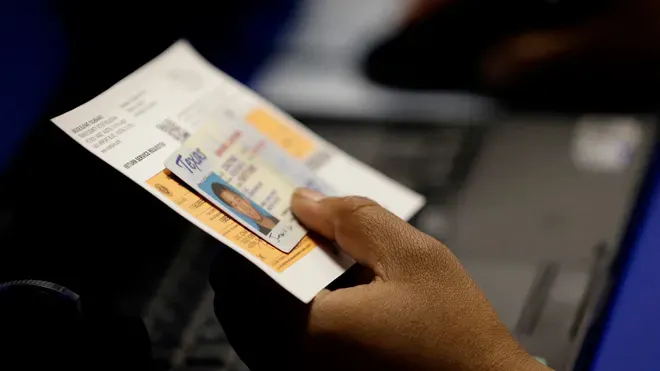Texas Voter Roll Audit Uncovers Thousands of Potential Non-Citizen Registrations
Texas Secretary of State Jane Nelson announced on Monday that a comprehensive review of the state’s voter rolls has identified over 2,700 potentially ineligible immigrants registered to vote. This discovery emerged from what officials describe as a groundbreaking crosscheck between Texas’s 18 million registered voters and federal citizenship records maintained in the U.S. Citizenship and Immigration Services’ SAVE database. “Only eligible United States citizens may participate in our elections,” Nelson emphasized, crediting the Trump Administration’s decision to grant states free and direct access to this federal database for the first time. The collaboration has significantly enhanced Texas’s ability to verify voter citizenship and maintain accurate voter rolls ahead of the 2026 election cycle.
The investigation’s findings have triggered a statewide verification process across all 254 Texas counties, with local election officials now responsible for conducting thorough reviews of each flagged registration. Under Chapter 16 of the Texas Election Code, county registrars must send notices to all identified individuals, giving them a 30-day window to provide proof of U.S. citizenship. Those who fail to respond or cannot verify their citizenship status will have their voter registrations canceled—though reinstatement is available immediately upon providing proper documentation. The process aims to balance thoroughness with fairness, with Nelson stating, “Everyone’s right to vote is sacred and must be protected. We encourage counties to conduct rigorous investigations to determine if any voter is ineligible—just as they do with any other data set we provide.”
The geographic distribution of these potential non-citizen voters spans the entire state, though concentrated in larger urban areas. Harris County leads with 362 flagged registrations, followed by Dallas County (277), Bexar County (201), and El Paso County (165). Even smaller counties reported some questionable registrations, demonstrating the statewide nature of the concern. This latest review builds upon previous verification efforts that have gained momentum since the implementation of Senate Bill 1, Texas’s election integrity law. The Secretary of State’s office had already referred 33 potential non-citizens who voted in the November 2024 General Election to the Attorney General’s Office for investigation, a move made within weeks of gaining access to the SAVE database.
Governor Greg Abbott has framed these efforts as part of a broader initiative to protect election integrity in Texas. “These reforms have led to the removal of over one million ineligible people from our voter rolls in the last three years, including non-citizens, deceased voters, and people who moved to another state,” Abbott noted. He emphasized that Texas law mandates ongoing review of voter rolls and the removal of ineligible voters, with potential cases of illegal voting referred for investigation and prosecution. “Illegal voting in Texas will never be tolerated,” Abbott declared. “We will continue to actively safeguard Texans’ sacred right to vote while also aggressively protecting our elections from illegal voting.” The governor has positioned Texas as a national leader in election integrity efforts.
The identification of potentially ineligible voters comes amid growing national attention to voter roll accuracy. Several other states, including Georgia, Arizona, and Florida, have undertaken similar audits of voter eligibility in recent years. Texas’s participation in a pilot program with the Department of Homeland Security, U.S. Citizenship and Immigration Services, and the Department of Justice has put it at the forefront of these verification efforts. “We are in the early stages of this pilot program, but we already see promising results. This may be the most current and accurate data set there is when it comes to citizenship verification,” Secretary Nelson explained. The collaboration has enabled Texas officials to not only identify individuals who may have voted illegally but also to confirm the naturalization of many others who are legitimately registered.
The immediate next steps involve county registrars completing their investigations by early December, after which official removals from voter rolls and potential referrals to law enforcement will follow. The Secretary of State’s office has committed to continuing periodic checks against federal databases as part of an ongoing effort to maintain accurate voter rolls. For individuals confirmed to be non-citizens who cast ballots in previous Texas elections, the consequences could be serious—their cases will be referred to the Attorney General’s Office for further review and potential prosecution. Nelson emphasized that this comprehensive approach using the SAVE database represents “a critically important data set and one of many that we will continue to use in Texas to ensure that only qualified voters cast a ballot in our elections.” As the process unfolds, it highlights the tension between ensuring election security and maintaining voter access—a balance Texas officials insist they’re committed to maintaining.















